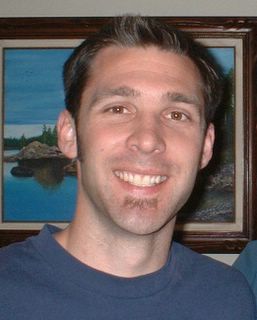Deserving?
"Christ died for men precisely because men are not worth dying for: to make them worth it." (C.S. Lewis)
Check out http://bibliosblog.blogspot.com/2005/07/under-overpass-portland.html for the context.

An Idaho resident (again), via D.C., Kansas, and Southern CA (that's backmapping:), I'm an educational consultant and Marriage/Family Therapy student who likes laughing with my wife, setting off on new adventures, drinking great coffee, discovering new stories, dreaming big with friends, introducing people to new ideas and places, expanding my etymological prowess, dancing, and sharing countless stories about growing up on a farm. Oh, and I'm growing in my admiration of Mahatma Ghandi - learn his life and be inspired!
1. From his birth to his new birth or conversion: 1802-1825
2. From his conversion to full entrance on his life-work: 1825-1835
3. From this point to the period of his mission tours: 1835-1875
4. From the beginning to the close of these tours: 1875-1892
Here are some quotes and reflections from the first two chapters:
"The divine Hand in this (Muller's) history is doubly plain when, as we now look back, we see that this was also the period of preparation for his life-work--a preparation the more mysterious because he has as yet no conception or forecast of that work. During the next ten years we shall watch the divine Potter, to Whom George Muller was a chosen vessel for service, moulding and fitting the vessel for His use. Every step is one of preparation, but can be understood only in the light which that future casts backward over the unique ministry to the church and the world, to which this new convert was all unconsciously separated by God and was to become so peculiarly consecrated." (p. 28)
* Recently, in a Ministry Mentoring small group w/ Pastor Mark, we have been talking about our passions and the paths to pursuing/developing those passions. Looking at Muller's life and the lives of all the saints before us, I am becoming more and more certain that every step is one of preparation, regardless of how seemingly insignificant or hard or horrible the current step might seem! That can be hard to swallow, especially if you're like me and wish that the path to pursuing our passions was always as clear to us as it must be to God! :) Ah, what room for faith and growth would be left if we could see the path so clearly? Seems that the journey is essential, because that is all there is anyway. We will never arrive, at least here on earth. Learn from the journey. Do not despise the days of small things. These are truths I need to remember!
"Nothing is more wonderful in histroy than the unmistakable signs and proofs of preadaptation. Our life-occurences are not disjecta membra - scattered, disconnected, and accidental fragments. In God's book all these events were written beforehand, when as yet there was nothing in existence but the plan in God's mind - to be fashioned in continuance in actual history - as is perhaps suggested in Psalm 139.16.
We see stones and timbers brought to a building site- the stones from different quarries and the timbers from various shops-and different workmen have been busy upon them at times and places which forbade all conscious contact or cooperation. The conditions oppose all preconcerted action, and yet, without chipping or cutting, stone fits stone, and timber fits timber-tenons and mortises, and proportions and dimension, all corresponding so that when the building is complete it is as perfectly proportioned and as accurately fitted as though it had been all prepared in one workshop and put together in advance as a test. In such circumstances no sane man would doubt that one presiding mind-one architect and master builder-had planned that structure, however many were the quarries and workshops and labourers.
And so it is with this life-story we are writing. The materials to be built into one structure of service were from a thousand sources and moulded into form by many hands, but there was a mutual fitness and a common adaptation to the end in view which prove that He whose mind and plan span the ages had a supreme purpose to which all human agents were unconsciously tributary. The awe of this vision of God's workmanship will grow upon us as we look beneath and behind the mere human occurences to see the divine Hand shaping and building together all these seemingly disconnected events and experiences into one life-work" (31-32)
* Amen! Thank you God for making us your poema - your poem, your workmanship! Thank you for making the events of our lives connected, meaningful, and purposeful, even when we don't see it or plan it!
"George Muller found in the word of God one great fact: the love of God in Christ. Upon that fact faith, not feeling, laid hold; and then the feeling came naturally without being waited for or sought after. The love of God in Christ constrained him to a love-infinitely unworthy, indeed, of that to which it responded, yet supplying a new impulse unknown before. What all his father's injunctions, chastisements, entreaties, with all the urgent dictates of his own conscience, motives of expediency, and repeated resolves of amendment, utterly failed to effect, the love of God both impelled and enabled him to do - renounce a life of sinful self-indulgence. Thus early he learned that double truth, which he afterwards passionately loved to teach others, that in the blood of God's atoning Lamb is the Fountain of both forgiveness and cleansing. Whether we seek pardon for sin or power over sin, the sole source and secret are in Christ's work for us" (35-36).
* Just a great reminder through the life of Muller that we are both saved and sanctified by grace. The work in our lives that began through the power of Christ must continue through that same resurrection power. Fill us, Spirit. Fill us.